2017 was a challenging year for bond investors as interest rates rose in Canada. That challenge contrasted with what was a decent year for Avenue’s equity portfolio where the return was roughly in line with our expectations. However, within the portfolio there were certainly plenty of variables which we will discuss in this quarter’s letter. Also, we would like to reaffirm how Avenue’s portfolio strategy is always looking to lower risk given our view that there are now parts of the stock market that we would describe as overvalued.
Last year we experienced rising interest rates in Canada. In last quarter’s letter we went into detail about how bond prices are affected in a rising interest rate environment and how we can protect ourselves from losses. Avenue’s bond portfolio has a majority exposure to higher yielding Canadian corporate bonds and the overall portfolio has a medium term to maturity of roughly six years. So, when interest rates went up the prices of the bonds went down but with the higher interest payments we were still able to have a positive return of 1.5% for the year.
Also discussed in last quarter’s letter, it is always better to have higher interest rates going forward. We are constantly receiving interest income into the portfolio as well as bond maturities which can then be reinvested at today’s higher interest rates. We maintain our belief that we can compound in the bond market at between 3% and 4%, even in this low interest rate environment.
We try to avoid making broad investment predictions, preferring to stick with the fundamentals of our individual holdings. However, we still have a forecast that interest rates will remain low for the foreseeable future given that Canadian inflation will remain in the 1.5% to 2% range. While this is important for how we invest the bond portfolio, it is equally important for how stocks are valued by investors.
Monitoring inflation will certainly be critical in the year ahead, as 2018 is set to be the first year in this decade where all major economies are positioned to grow. Overall inflation in Canada will likely be muted because we already carry high consumer debt but there will likely be pockets of higher prices as some global markets tighten.
When analyzing Avenue’s equity portfolio, the rise in interest rates also resulted in a decline in price for our investments in pipelines and utilities. This was certainly the main drag on our returns in 2017. However, we believe this hit to the sector is now behind us and dividends will continue to increase. We have taken this stock market weakness as an opportunity to increase our investment in Enbridge, which we feel offers great value for the long term.
Energy was the other major sector that stalled last year. The global oil price has recovered but the oil price that Canadian companies receive is still much lower due to insufficient pipeline capacity to move the oil out of Alberta. We believe pipeline capacity will increase in the next few years and investors will come back to invest in Canadian producers. Meanwhile, this market sector pessimism gave us the opportunity to invest in Cenovus at the end of the previous quarter.
The Amazon effect became a major theme over the course of 2017. The Amazon effect basically postulates that Amazon will take over all retailing one day. This has put pressure on the stocks of many traditional retail businesses. Amazon itself is a very expensive stock, therefore it does not meet Avenue’s criteria to purchase based on the extreme valuation of its share price. CVS came under pressure in 2017 when it was believed that Amazon was going to enter the drug retailing business. However, when we spent time researching CVS, one of the largest drug stores in America, we felt the stock market was being too pessimistic. CVS is also more than just a drug store. With its new acquisition of Aetna it is transforming the company into a comprehensive healthcare benefits provider, in addition to its retail pharmacy business. We believe this investment is a great example of investing in a good business at a compelling valuation, but it will likely require some patience.
In conclusion, many stocks have gone up significantly in the last few years. 2017 was yet another year where we would characterize some large technology stocks as going from expensive to very expensive. We believe there is now real concentration risk in the stock market where investors have greatly increased their exposure to only a handful of companies.
Avenue believes we can greatly reduce the risk of our equity portfolio by being broadly diversified and making sure we stay away from expensive investments. We picked these few examples to demonstrate why, as dividend income comes into the portfolio or we sell stocks that have done well, we try to reduce the risk of the portfolio by reinvesting in good businesses with relatively limited downside. As long as each investment meets our return criteria, with patience, we hope to continue to compound at our target rate of 8-10%. As always, our stated goal is to double our portfolio every 10 years with as little risk as possible.
